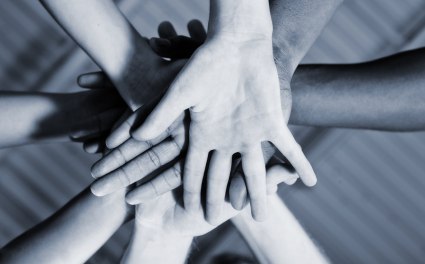I would want some signs to look for between enabling a loved-one and caring/being supportive of that person? Is there usually a clear line?”
Well, caring describes a feeling of concern or compassion. Support is an expression of that caring in some positive way. Enabling is about protecting somebody from consequences that might motivate change. You can identify enabling by asking yourself a few simple questions:
- What’s the problem behavior, and why is it a problem? For instance: “Ben drops a few hundred bucks every weekend at the casino. He doesn’t make enough to support this habit. Last month he couldn’t pay his rent.”
- Is somebody protecting him or her from the consequences of the behavior? As in: “My mother gives Ben money so he can make up his losses. The next weekend Ben is back losing at the tables again.”
- Does that interfere with his/her motivation for positive change? “Heck yes. Why should Ben stop gambling when my mother keeps bailing him out of financial trouble?”
Where real support is the result of caring, enabling usually springs from guilt, fear, or a misplaced sense of responsibility for someone else.














Enabling is not only a complex issue but a very sensitive one. Loved ones of an addict struggle deeply to link the withdrawal of enabling behaviours with effective, caring support. I often hear “my son has always come first” from desperate mothers. Constantly bailing out an addict, for example, financially, only serves to prolong addictive behaviour. The important thing is to understand that, in addiction, the dynamics have changed and strong boundaries must be established. The addicts’ loved ones are often the deepest sufferers. This is something the active addict is generally ignorant of as he/she is denial. However, denial is no excuse! We must dig deeper and examine the evidence, the specifics, to break down denial. I used heroin, methadone and alcohol and, now, in recovery, I can’t change the past but have to appreciate the anguish my addiction caused my loved ones. In recovery I am able to give them some peace. There is no place for guilt and shame which can be self–defeating. Not picking up is my way of saying sorry.
Hi Hope — to me, it sounds like a typical situation in which family members find themselves, and the term I’d use for it is ‘dilemma’. You’ve been providing the $$ primarily for your grandson’s benefit but at the same time he’s not really getting the benefit and you may just be prolonging his parents’ drug use. The choices seem obvious — continue enabling or stop cold-turkey — but there’s a third option: structured intervention. That’s where you seek advice from an intervention specialist on how best to interrupt this pattern. It’s best to let a pro guide you, because then you can get advice about other issues that come up when a family sets out to deal with an addiction.
Oddly enough, your daughter’s dependence on your money may actually turn out to be a bargaining chip in convincing her to accept help. It might be a condition of compliance with a treatment plan.
My daughter (27 y/o) was addicted to narcotic pain killers and her father says I was an enabler because I helped pay their bills. I didn’t know at the time that she was addicted but I did feel in my heart that she was. Now I feel that if I had stopped helping her and her husband that maybe they would have stopped but I didn’t do the things for them exactly, I did it to make sure that my grandsons home wasn’t lost. I had my grandson at my home 90% of the time though. Did I really enable them to continue their habit? Is there something else I should have done instead?
Not all enablers are so wonderful. Many do it for control. Men do it to control sex and behaviour in an intimate relationship….my mother did it to control my behaviour. She does it to my whole family. When i got clean she lost control of me and had no use for me anymore. It is very complicated issue.
Actually Darlene….I would add that depending on the family people enable to control. I know that in my family it was beneficial to help me stay sick. Then they didnt have to look at themselves…I WAS THE PROBLEM. My mom gave me money because she knew i wanted dope…and in fact when i quit they really turned their backs on me. I was an easy target…She would use that money and my addiction to control my behavior. (well at least what she could see of it) I dont think all enablers are this way but I definatly know that my family isnt the only one. She knew what she was doing….she knew where the money was going…she knew it was gonna kill me eventually. I think it is very complicated.
Enablers really care also and think they’re being supportive. They’re not aware that their motives are coming from fear, guilt, and low self-esteem. To learn more about the differences and what you can do, see http://www.whatiscodependency.com/are-you-an-enabler-and-what-you-can-do
Darlene Lancer, MFT
Author of “Codependency for Dummies”